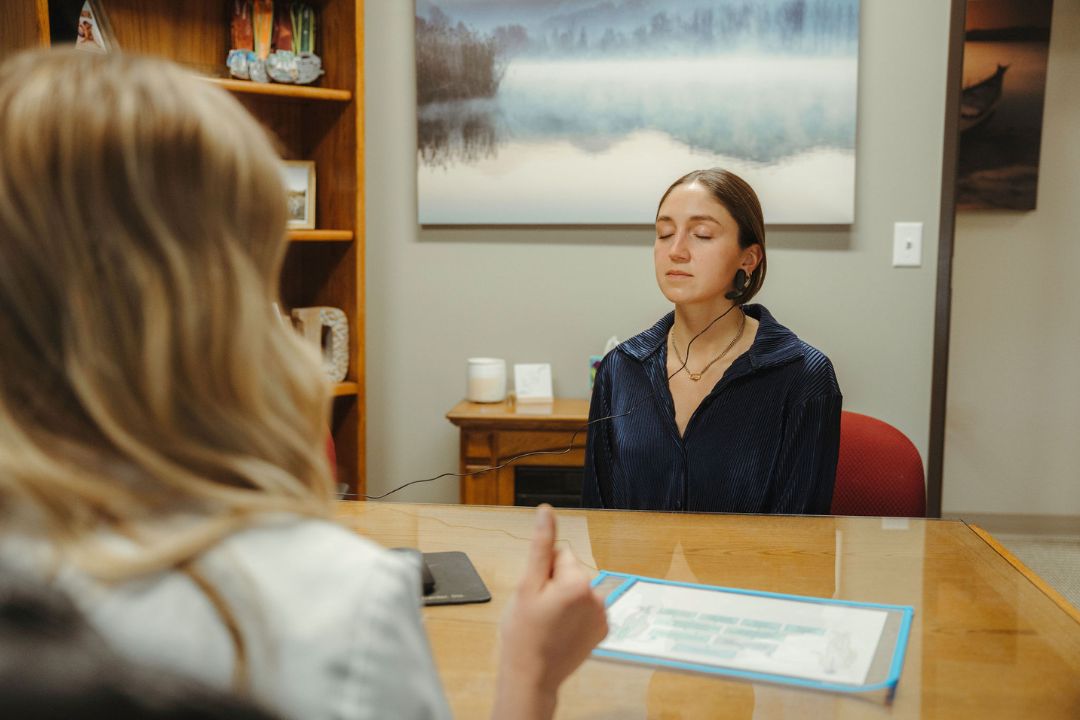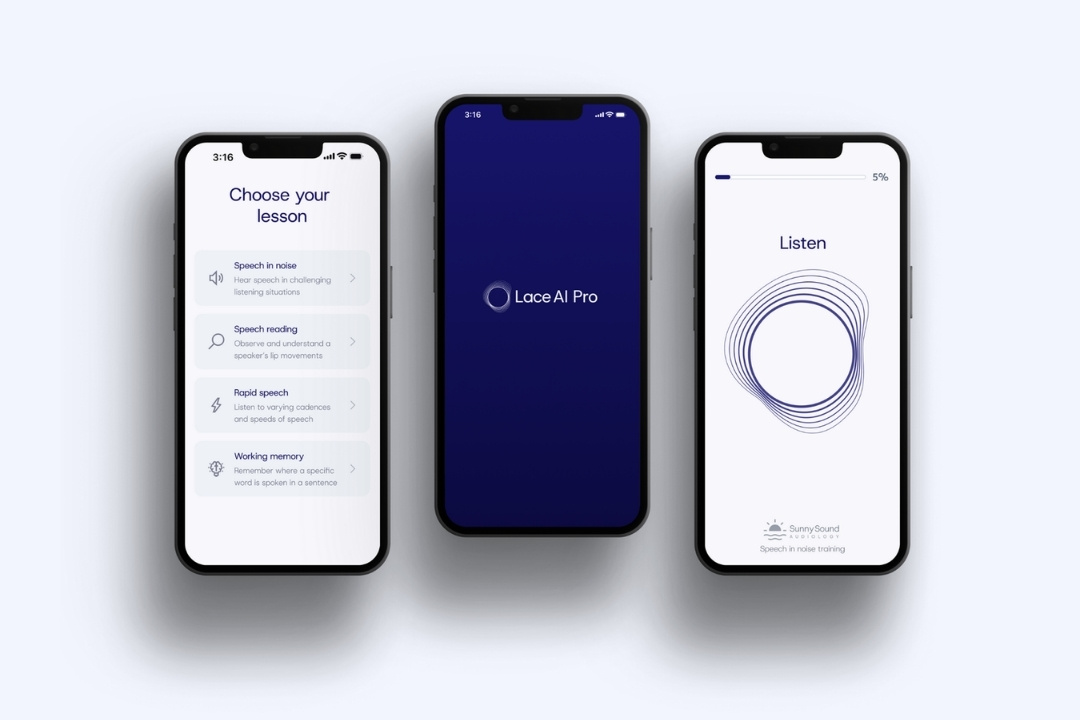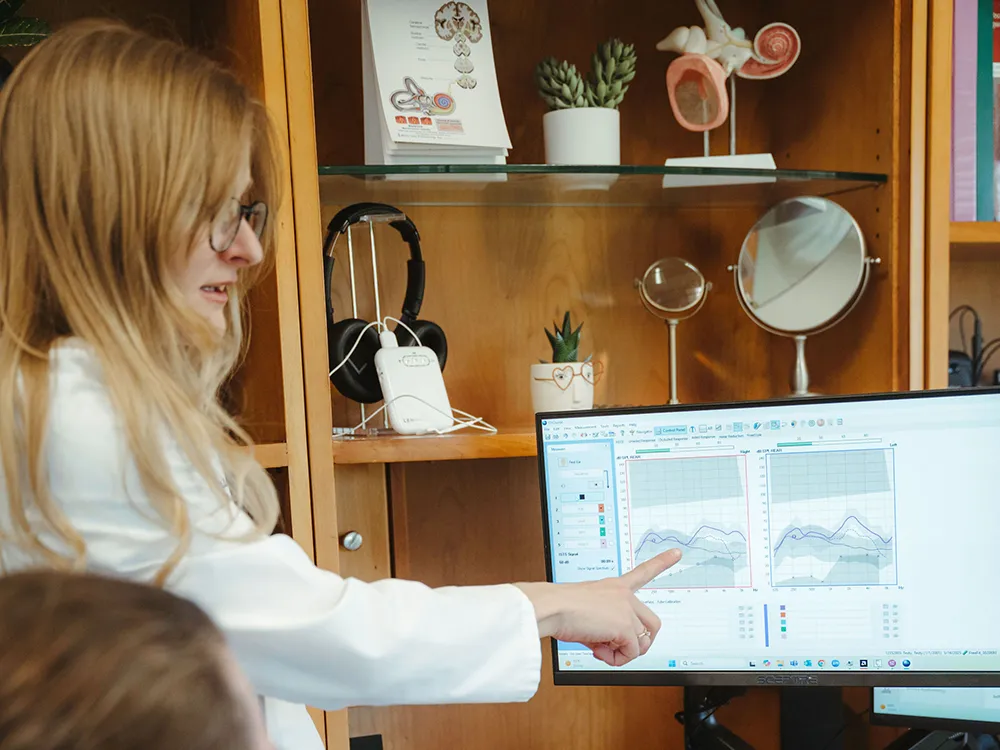Misophonia
At Colorado Tinnitus and Hearing Center, we provide specialized care for individuals suffering from misophonia—a condition characterized by extreme emotional and physical reactions to specific sounds. Our doctors of audiology understand the significant impact this condition can have on your daily life and relationships, and we offer evidence-based treatment approaches to help you manage your sound sensitivities.

Relief from Sound Sensitivity
Misophonia causes intense emotional reactions to common sounds like chewing, breathing, or repetitive noises. Our team works closely with the Misophonia Provider Network to deliver the most current and effective treatment options. We understand the isolation and distress this condition can cause and provide a supportive environment where you'll find understanding and practical solutions to help you or your loved one regain control of your life.
Our Misophonia Treatment Process
Our comprehensive approach to misophonia focuses on understanding your unique triggers and developing personalized management strategies.
.jpg)
Thorough Assessment
We conduct detailed evaluations to understand your specific sound triggers, reactions, and how misophonia affects your daily life.
Education and Counseling
We help you understand the neurological basis of misophonia and provide strategies for communicating your needs to family and colleagues.
Treatment Plan Development
Based on your assessment, we create a personalized treatment plan using evidence-based approaches and the latest research.
Ongoing Support and Adjustment
We provide regular follow-up care to monitor your progress and adjust treatment strategies as needed.
.jpg)
Understanding Misophonia
Misophonia, meaning "hatred of sound," involves extreme emotional reactions to specific sounds—particularly those related to eating, breathing, or repetitive movements. Most people develop misophonia in late childhood or early adolescence, around age 10-12, and symptoms often intensify with age as more sounds become triggers.
Unlike general noise sensitivity, misophonia involves specific, often quiet sounds triggering disproportionate emotional responses. These reactions can lead to anxiety, rage, and avoidance behaviors that significantly impact daily functioning and relationships.
Benefits of Misophonia Treatment
Our specialized approach to misophonia treatment offers several key advantages:
Reduced emotional responses to trigger sounds
Effective coping strategies for unavoidable situations
Improved family and social relationships
Enhanced quality of life and decreased isolation
No. While most people occasionally find certain sounds irritating, misophonia involves intense, involuntary emotional reactions that trigger fight-or-flight responses to specific sounds. It's a neurological condition, not simply being "bothered" by noises.
While there is currently no complete cure for misophonia, it is highly treatable. With proper management strategies and therapeutic approaches, most patients experience significant reduction in symptom severity and substantial improvement in daily functioning.
Common triggers include eating sounds (chewing, crunching, slurping), breathing sounds (sniffling, heavy breathing), repetitive sounds (tapping, clicking, typing), and certain speech patterns. Triggers vary by individual and often expand over time.
Family involvement can be beneficial, as education about misophonia helps create understanding and support. However, treatment primarily focuses on providing you with management strategies, regardless of family participation.
Yes. Since misophonia often begins in childhood or adolescence, early intervention can be particularly effective. We provide age-appropriate treatments for younger patients.
Treatment duration varies by individual. Many patients see improvements within a few months, though managing misophonia is often an ongoing process with strategies that evolve over time.
Common Questions About Misophonia
We understand you may have questions about misophonia and available treatments. Here are answers to questions we frequently receive from patients.
Specialized Misophonia Treatment Services
At Colorado Tinnitus and Hearing Center, we understand the tremendous impact misophonia can have on your life—from strained relationships to social isolation and constant anxiety. Our specialized approach combines the latest research with practical strategies to help you manage your reactions to trigger sounds and regain control of your daily life.
Dr. Patty Kalmbach and Dr. Danielle Jenkins have extensive experience in treating sound sensitivity disorders and has worked closely with the Misophonia Provider Network to implement effective treatment protocols. You don't have to continue suffering in silence or feeling misunderstood. Many patients who come to us have already seen multiple providers who couldn't help with their condition—we're often the "last stop" where they finally find relief and understanding.
Don't let misophonia control your life any longer. Contact our office at 303-534-0163 to schedule a consultation and begin your journey toward managing your sound sensitivities effectively.
Other Services

Auditory Training
Our LACE AI auditory training programs help train your brain to better process speech and sounds, improving comprehension even in challenging listening environments.
View Service
Misophonia
We offer specialized treatment for misophonia using proven approaches to reduce emotional reactions to trigger sounds and develop effective coping strategies.
View Service
Biofeedback Therapy
Stress management technique that reduces tinnitus distress through heart rhythm training.
View Service